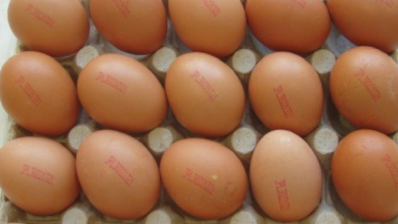Salmonella outbreak linked to sesame paste made by Greek manufacturer

Salmonella serotype with antigenic formula 11:z41:enz15 has never been described before.
Five EU Member States reported 47 confirmed infections by this new Salmonella serovar in more than one year.
Traceback focused on two positive products: hulled and pasteurised sesame seeds (made with seeds from Nigeria) and a sesame paste (produced with seeds from Sudan).
Sesame paste from Greek manufacturer
The European Centre for Disease Prevention and Control (ECDC) said due to the serovar novelty and the distance of Nigeria and Sudan it seems unlikely contamination occurred independently in the seeds from the two countries.
Analysis showed a Greek company was the unique link between the contaminated items. The firm was not named and EFET (The Hellenic Food Authority) has not yet responded to our request for comment.
Evidence linked some outbreak cases to a sesame paste produced by the Greek manufacturer. The sesame seeds used were traced to an African country.
The same Greek manufacturer also processed a batch of sesame seeds imported from another African country that tested Salmonella positive after processing.
“During the processing of the Sudanese seeds (delivered on 2 November 2015) for the production of sesame paste, the usually entirely closed production line was brought to an unscheduled halt, and the tahini was temporarily stored in plastic pallet tanks; for this step, no information on sanitation conditions was available.
“This could be a contributory factor to the contamination of the sesame paste. Moreover, considering that the Nigerian sesame seeds were not mixed with the Sudanese seeds, it is conceivable that the environment might have played a role in the cross-contamination.”
In October 2016, Lot 1 of the hulled and pasteurised sesame seeds (production date 5 October 2016) was sampled at the Greek company and was negative for Salmonella.
In November, Lot 1 (hulled sesame seeds) tested positive for Salmonella 11:z41:enz15 and the entire positive lot was shipped back through a German trader to the Greek supplier.
Salmonella-positive Lot 1 of hulled sesame seeds was tested again for Salmonella in November and December 2016 at the Greek company, with negative results.
The entire lot was seized by Greek authorities and stored in the supplier’s warehouse.
Of 26 cases with available information, 12 were hospitalised but no deaths were reported.
Information on age was available for 46 of 47 cases: median age is eight years. Twenty-six were female.
First and last cases
The first three cases associated with the outbreak were reported in March 2016 by Greece and the last two in March 2017 by Germany and Luxembourg.
The outbreak peaked in April 2016 and since August that year one to four cases were seen per month.
In Greece, a case-case study of 11 cases with the new serotype and 22 cases of Salmonella Enteritidis indicated an association between the disease and consumption of tahini (a sesame-based product).
Interviews of five German and two Luxembourgish cases identified exposure to a specific sesame paste sold in a screw-lid glass jar.
Sesam La Creme (conventional) with batch 60318 and date 1.2.2018 was recalled by Schock GMBH in Austria, Belgium, Estonia, France, Luxembourg, Portugal and Switzerland) earlier this year.
Samples were taken in Germany from sealed jars of sesame paste from the household of one case and from the retailer where they purchased the product.
A test at the German national reference laboratory for Salmonella at the Federal Institute for Risk Assessment (BfR) was positive for Salmonella serotype 11:z41:e,n,z15.
ECDC said this ‘strongly suggests’ a connection between the contaminations in the paste produced with Sudanese seeds and the one concerning the sesame seeds from the Nigerian producer.
The Greek National Reference Centre received about 200 Salmonella isolates in the last quarter of 2016 which await serotyping and could lead to additional cases that match the outbreak case definition.
In May 2016, Greece reported a cluster of cases of Salmonella enterica subspecies enterica with antigenic formula 11:z41:e,n,z15, not previously described in the White-Kauffmann-Le Minor-scheme.
The Pasteur Institute in Paris confirmed the results of the Greek laboratory verifying a new serovar and if this is confirmed by ongoing additional testing a name will be given to it.
Twelve countries (Austria, Cyprus, Denmark, Finland, France, Ireland, Italy, the Netherlands, Norway, Scotland, Sweden and Switzerland) have not seen human Salmonella isolates with the antigenic formula.






















